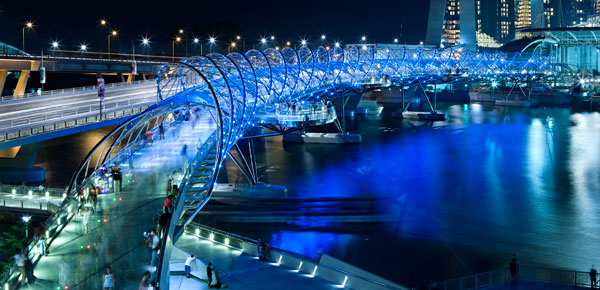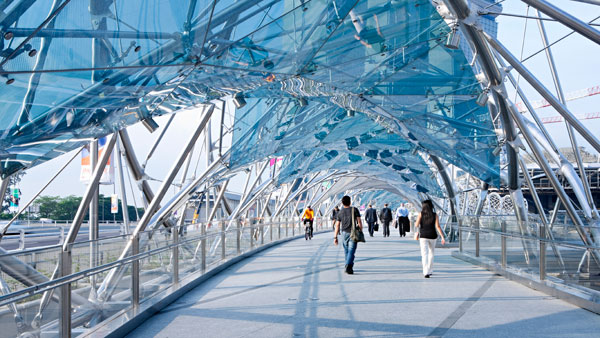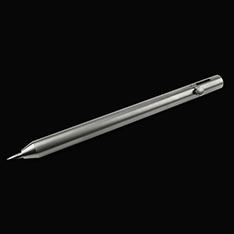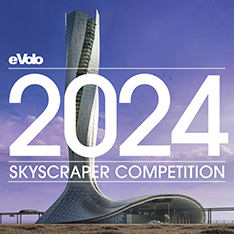The Helix Bridge designed by Cox Rayner Architects is one of the few, if any, bridges in the world to be named after its structure. In addition to its uniqueness of structure and form, it was designed to respond to its particular setting at the opening of the Singapore River to Marina Bay, a large inner harbour on which much of the city is now focussed.
The concept derived initially from the desire to curve the plan of the bridge so that it sweeps down onto promenades either side. This ‘arc’ was also means of curving the pedestrian bridge away from an adjoining new vehicular bridge, also designed by the same team, while enabling the two to connect at a mid-point.
The brief required the Helix Bridge to be canopied for shade and shelter in the tropical climate. The notion of a tubular cross-section, which allowed the canopy and deck to be integrated, evolved from this requirement. The team found that a double spiral structure would utilise up to five times less steel than a conventional box girder bridge, and equally became excited about the prospect of such a structure making an iconic statement about Singapore as a ‘green’, walking city.
Having selected the design in a 36 entry international design competition, Singapore’s Urban Redevelopment Authority decided that it should be constructed entirely in stainless steel. This decision enabled the tubes, struts and ties to be finely crafted, the multiple connection joints being designed to appear organic. These details, and the helix form overall, led to the bridge being popularly compared to the DNA molecule, with its connotations of ‘life-giving’ and ‘sustainability’.
photos ©Christopher Frederick Jones

















